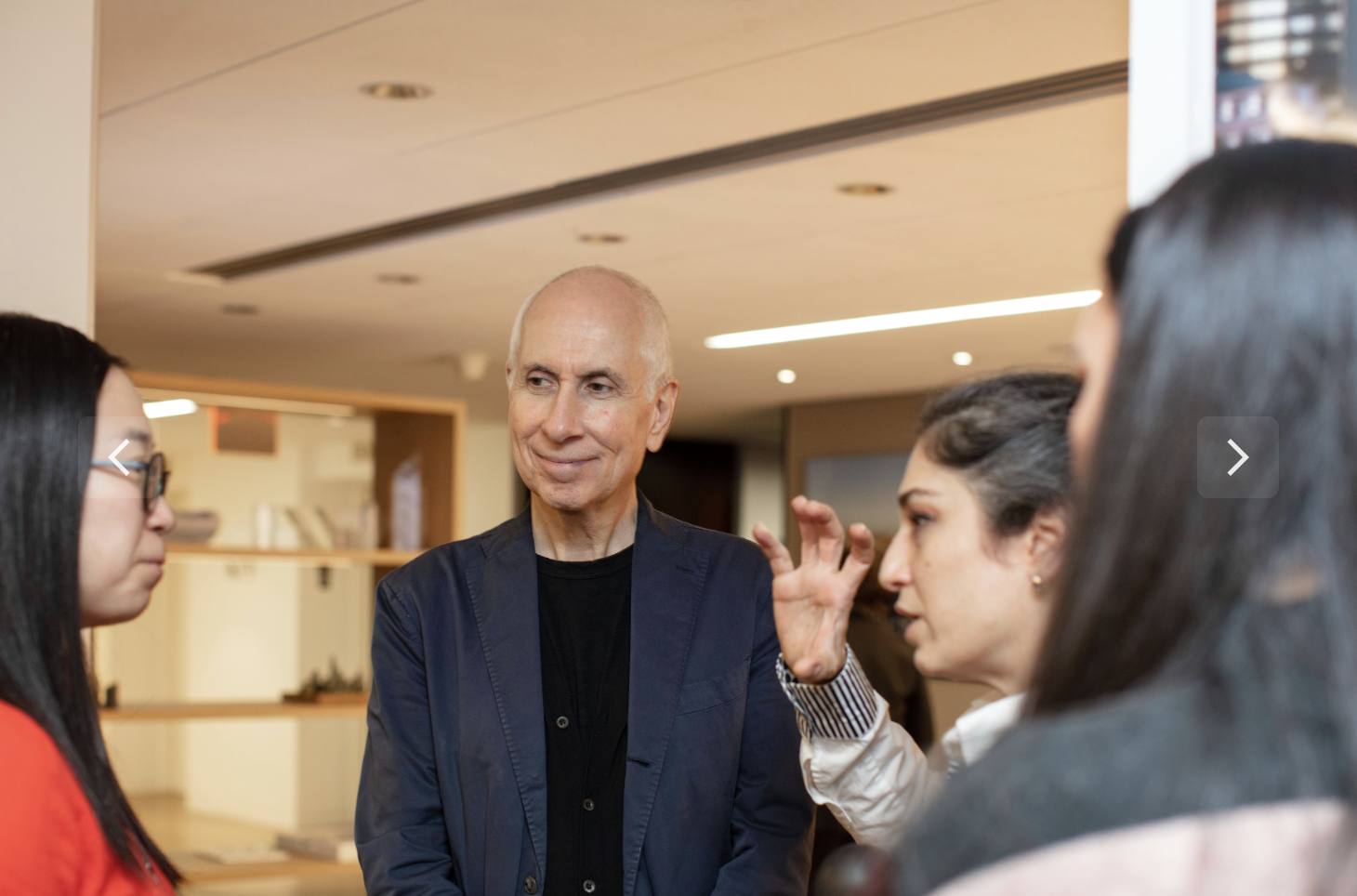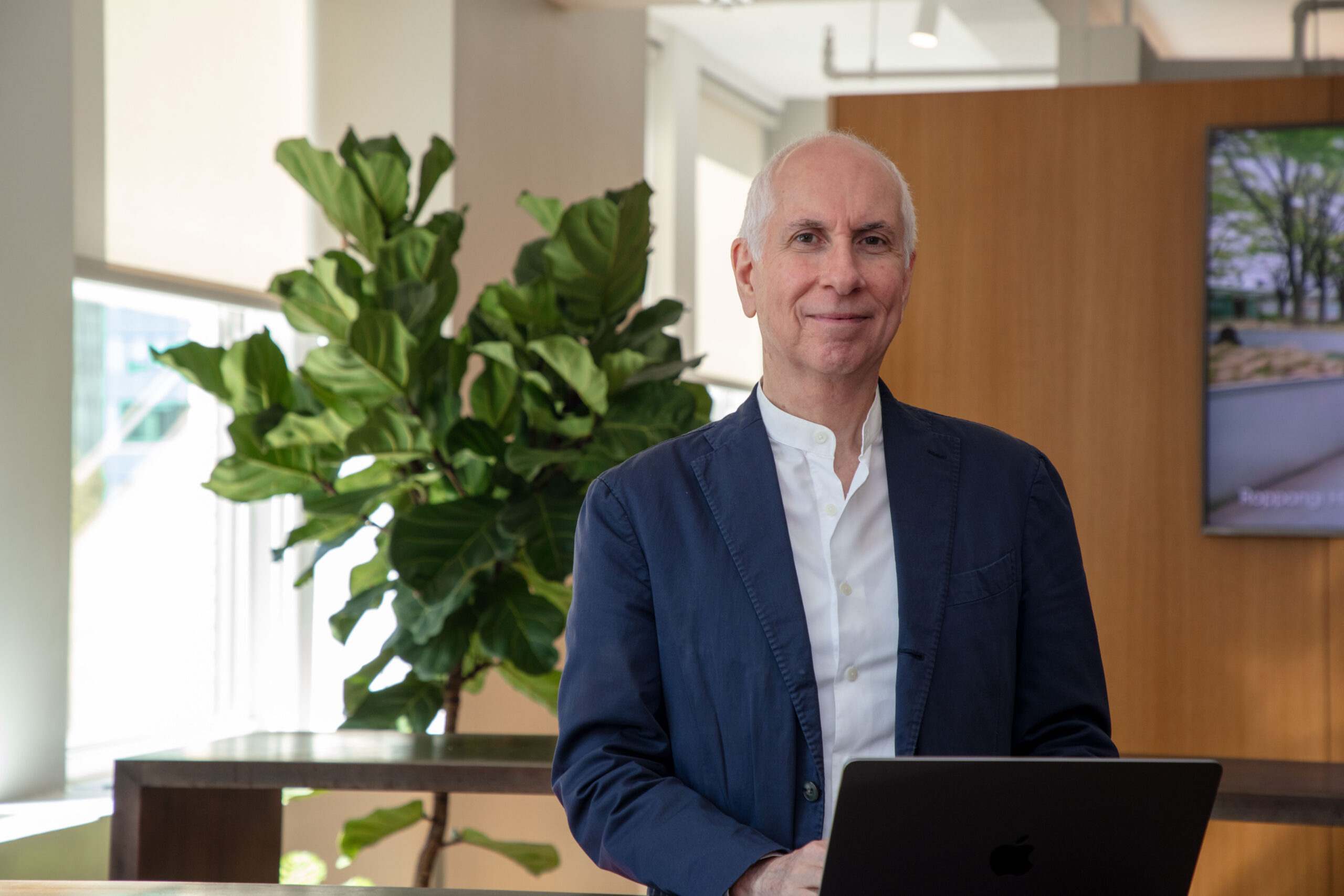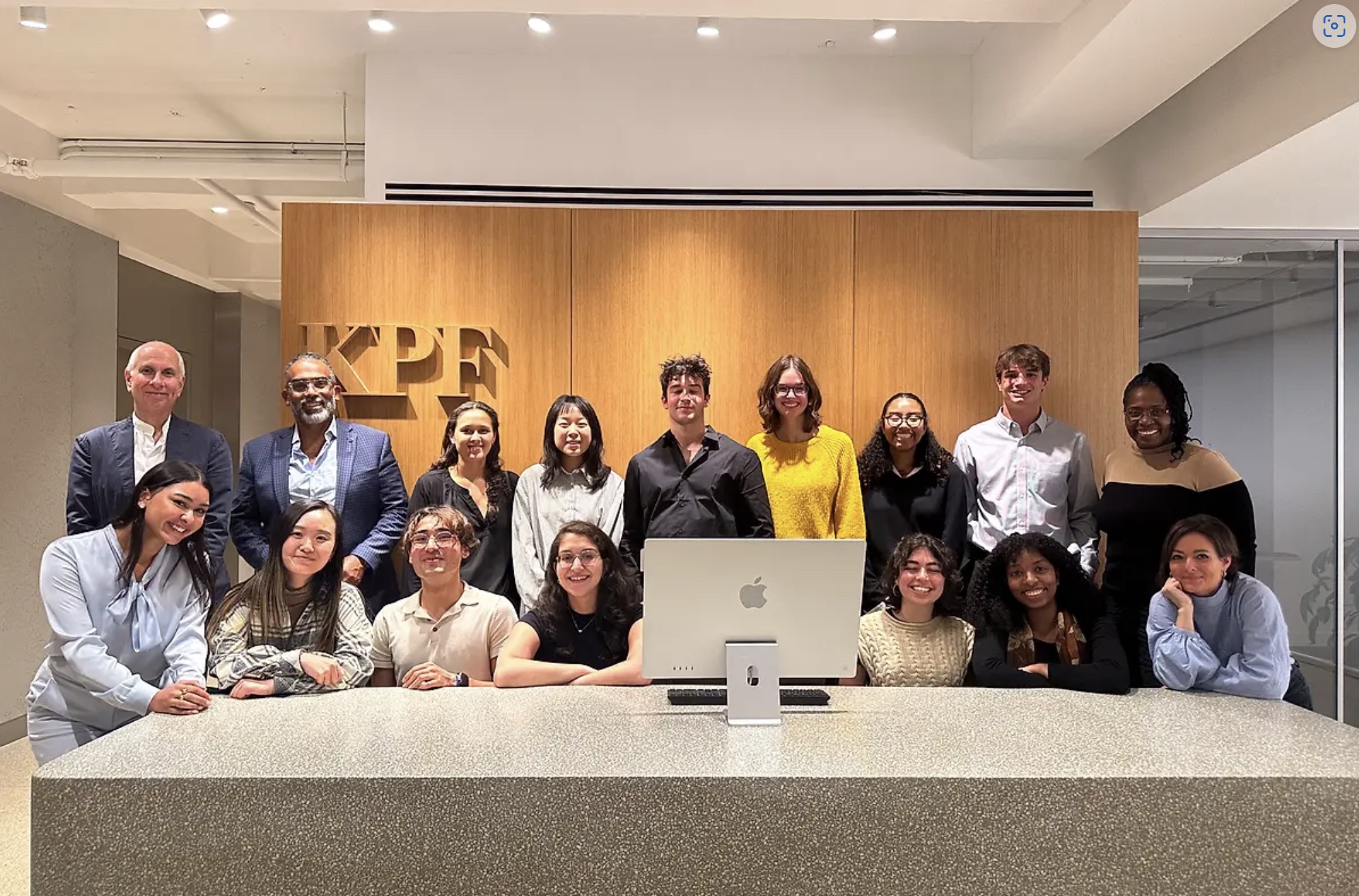Working at the intersection of architecture and technology, James Brogan, the chief information officer and principal at the architectural design firm Kohn Pedersen Fox Associates (KPF), is always problem-solving. Having directed the digital advancement of KPF’s global practice for two decades, Brogan’s leadership skills are often directed toward his clients, helping them adapt to a rapidly shifting digital ecosystem. Over the years, Brogan has begun to apply those same skills to the next generation as a mentor within KPF, helping young architects find their voice in a competitive industry. Brogan has also recently served as a mentor for Pratt’s Dinner with Six program, where he hosted six undergraduate students for an evening at KPF’s New York headquarters, and imparted wisdom on how he has applied lessons learned at Pratt to his career.
What role has mentorship played in your architectural career?
Earlier in my career, I was focused on developing my tactical skills, how I can best make a significant contribution to practice, and overall developing my architectural, technological, and business skills. I was very fortunate to have an “unofficial” professional mentor/colleague early in my career who gave me career and personal guidance and direction.
As I became licensed and developed my career further, I began to understand how powerful and impactful mentorship is to a developing professional and began to shift my attention to colleagues and acquaintances who were at earlier stages of their careers to guide and help influence the directions their careers may take.
As a senior member of my firm, and now taking a technology consultancy role in the industry, I feel mentorship has become one of my primary responsibilities—to help foster a sense of optimism and positive contribution while developing a strong purpose and voice in our evolving architectural industry.

Who was one influential figure for you at Pratt?
[School of Architecture] professor and former dean Sidney Shelov brought an optimism, boundless energy to academia, always highlighting the endless potential and influence an architect has on society. He exposed us to all types of practices large and small—however, knowing my interest in large, global practices, he made it a point of introducing me to these firms and their leaders directly.
Could you tell us a bit about your work with Pratt’s Dinner with Six program?
I have always emphasized the importance of the professional-academic relationship in our profession—both sides can learn so much and there needs to be a strong dialogue between the two. As an alumnus, I have always wanted a closer relationship with Pratt. When I saw the article in Prattfolio on Dinner with Six, I reached out to Annie McLaughlin, assistant director of Alumni Engagement, to volunteer KPF as a host for a future event.

One goal is to give the students exposure to a large global practice, with one objective to meet other Pratt alumni—including one winner of the KPF Traveling Fellowship [a scholarship the firm awards design-school students for travel]—to understand their trajectory from graduation to professional practice and eventually licensure. The one-on-one conversations were enlightening and energizing—and just as when Professor Shelov exposed me to professional practices when I was a student, I found the students energized to learn as much as they could about the profession, and their interest in the various trajectories one can take as a professional.
What advice would you give fellow mentors on how to support emerging talent?
Be present, available, positive, and proactive (meaning you’ll need to “check in” periodically), and of course be sure the interaction with your mentee is always a two-way dialogue. Avoid too much direct advice, rather empower the mentee to think on their own, be intentional and critical in understanding where they want to go professionally and how to get there.

